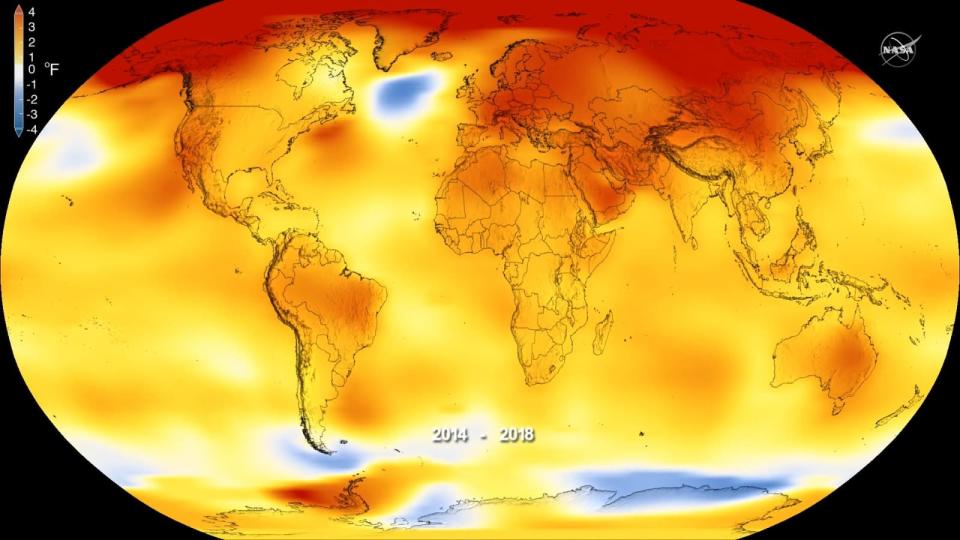2018 was the fourth-hottest year on record
NASA says the data reflects "a long-term global warming trend."
Earth's surface temperatures in 2018 were the fourth-highest of any year since records started in 1880, according to NASA's Goddard Institute for Space Studies (GISS) and the National Oceanic and Atmospheric Administration (NOAA). 2016 was the hottest year ever, followed by 2017 and 2015, and since 2001, we've had 18 of the 19 warmest years on record.
"2018 is yet again an extremely warm year on top of a long-term global warming trend," Gavin Schmidt, director of GISS, said in a statement. "The impacts of long-term global warming are already being felt -- in coastal flooding, heat waves, intense precipitation and ecosystem change."
NASA's analysis found that temperatures were 1.5 degrees Fahrenheit (0.83 degrees Celsius) above the mean from 1951 to 1980. Using much of the same data, NOAA estimates that global temperatures were 1.42 degrees Fahrenheit (0.79 degrees Celsius) higher than the 20th-century average.
Weather dynamics mean warming affects regions in different ways. 2018 saw the 14th-highest mean temperature on record in the contiguous 48 states, and it was the third-wettest year for the area despite persistent drought in the southwest and the northern plains. It was also nominally the warmest year for Europe (and particularly the hottest in France, Germany and Switzerland) since continental records began in 1910. The warming trends are most evident in the Arctic, NASA said.
NASA and NOAA revealed the report on the same day the House of Representatives is holding its first climate change hearing in eight years. NASA typically reveals the global temperature report in mid-January, though the government shutdown delayed the analysis.


